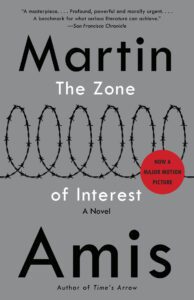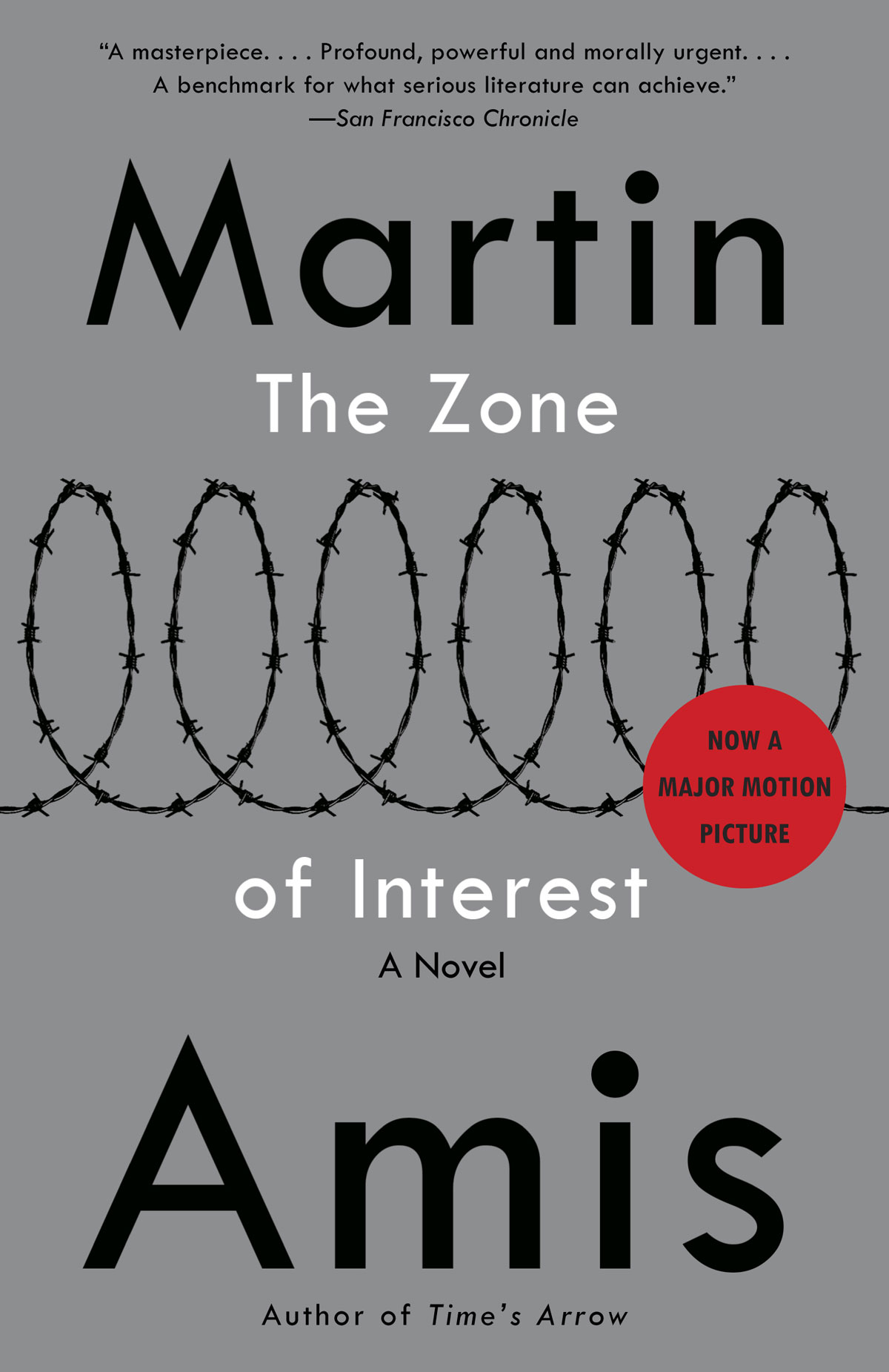
Author: Martin Amis
Publication Year: 2014
Length: 322 pages
Yes, I know The Zone of Interest became a movie. But it sat on my [digital] shelf for years — way before the film was even a twinkle in Jonathan Glazer’s eye. Or whomever was responsible for its coming into being. Delving into Martin Amis has become more and more challenging for me over the years. I feel like he used to be a laddish author writing about laddish men. I’ve come to understand that “laddish” is something that British people call immature bros. For instance, I was told back in 2004 by a Londoner that the Ben Sherman brand was laddish. So I fucking socked the chick and screamed something about football.
But, seriously, I started off my Amis obsession as a younger person with London Fields and read most of his other novels in that era. But his bibliography, for me, was a case of diminishing returns as I continued to punish myself with his increasingly less and less fun narratives until I hit the truly egregious book, The Pregnant Widow, in 2010. He was not the same author. His narratives were less off-the-wall and more just straight-up confusing. His characters had somehow morphed from blue collar beer swillers to erudite, Europe-jaunting spritzer jerks. I swore I’d never read another of his novels. And I was true to my word, skipping his 2012 novel, Lionel Asbo: State of England, which I’m just finding out was a thing. And, frankly, sounds terrible just based on the title alone. But by 2014 I’d forgotten my pledge. I read about the new Amis novel, The Zone of Interest, and its subject matter and I accidentally hit buy. Or unconsciously did. And then I looked at it for ten years just not wanting to subject myself to it. Until the movie hit. And I remembered why I bought it to begin with. That shit sounds interesting! So I loaded it up and I read it. Again, I haven’t seen the movie yet, so I have no idea how closely the novel and the film resemble one another. But I can’t imagine this is the version that was put on the screen and earned an Oscar nomination. It can’t be.
Look, I don’t want to speak ill of the dead (Amis died in 2023) but this was not a great book. Granted, I like very little. But I found it confusing. I kind of dreaded picking it back up for the first 200 pages of its time with me. Something about the structure where each chapter is narrated by one of three different characters made it feel disjointed. The constant use of German phrases, nicknames and his usual, but somewhat creepy, obsession with sexual relations added to my disconnection with the story and the characters. I would see German coming up on the page and my eyes would pretty much just skip over it. I don’t speak German. In fact, I’m kind of triggered by German. “Triggered” being one one of those Gen Z or Millennial words that actually makes a little bit of sense to me now. Nazis are triggering. The Holocaust is triggering. That gutteral language is triggering. Sorry. But I didn’t skip the German because it made me feel icky inside. I just couldn’t hang. I don’t need to Google shit while I’m reading. It’s not enjoyable. Also, I assume these Nazis are all speaking German. So why would Amis throw German into the English they are predominantly speaking in a book meant for English-speaking people? In the German translation of this book, do they just keep speaking German or something? It must be nonsensical. Whatever.
So, yes, I was not enjoying the first two thirds of this novel. It basically follows the life of three people in a concentration camp during WWII. The Nazi commander of the camp. Another Nazi dude who is a soldier of some rank at the camp. And a Jewish prisoner who is employed — under threat of death — collecting the belongings of the people who arrive at the camp, basically herding them to the showers and cleaning up their bodies afterward. The first two almost treat the job like they’re making widgets. They fall behind on production and they get in trouble. They keep the widgets pumping out and everything is good. But, unfortunately, the second guy is a horndog who is weirdly in love/lust with the first guy’s wife. The first guy being the boss. No, not that boss. A boss. That’s kind of it. At least for most of the book. This whole situation only becomes interesting once it’s clear Germany is going to lose the war and the overwhelming threat of what will unfold starts to hit them. The mass murder will be a tough thing to cover up when the Allies show up. The job they have will no longer be a job. The first dude reacts by essentially doubling down, starting to take his job way more seriously. While also kind of losing his mind. Whereas the second guy’s apathy toward the “cause” just increases as he focuses on his obsession with the aforementioned wife of the first dude. And the third dude, well, he has a lot of heavy shit to deal with.
And it is at this point that Amis decided to get out of the existential nature of the story. I call it that because that’s how it hit my brain. The slice of life meanderings of a death camp during the Holocaust. Good times. But toward the end, there is actually some plot. Some action. Something to grab and hold onto. A narrative with points you can actually remember. But it also, just as quickly, pulls the Animal House ending and then just kind of throws in the towel. There could have been so much more drama. Shit happened at the end of WWII. Bad shit. Good shit. Shit. But, like a lot of the novel, we’re kept at arm’s length from the characters and their plight. Sure, if we zoomed in, we would be treated to some horror. But that isn’t what this narrative is trying to do. It’s too cool for that. Not cool like The Fonz. Cool like it couldn’t bother. Or had no interest in bothering. It’s confounding. But, in retrospect, not unusual for Amis in his third act. That said, it’s made me more interested in watching the film to see how Glazer interpreted what is a pretty abstract piece of art. Review to come.


